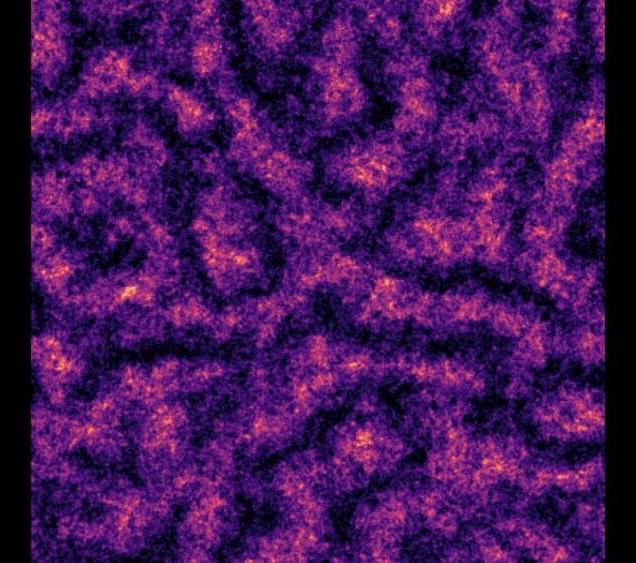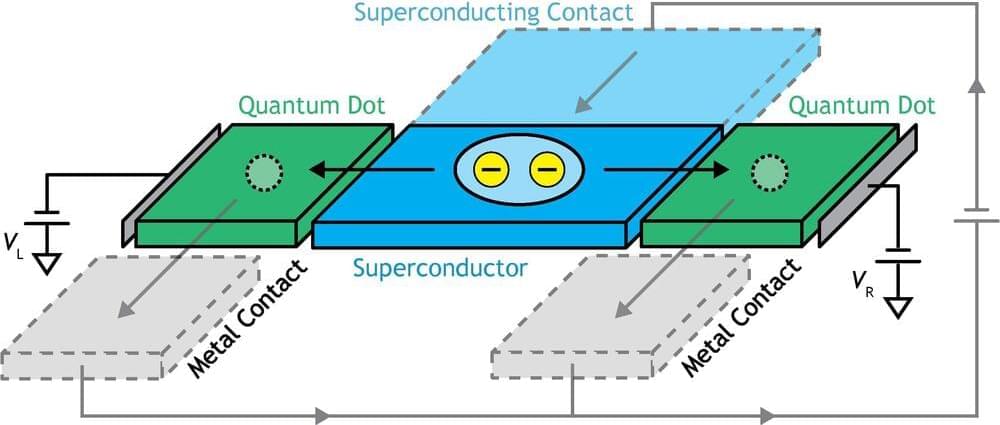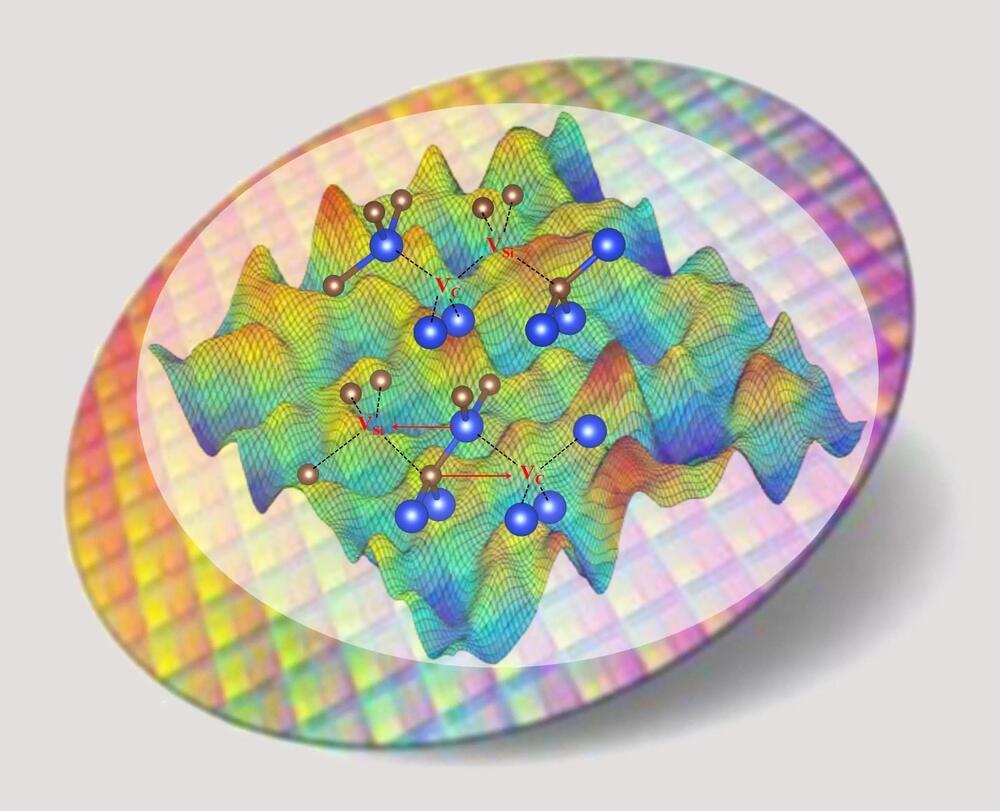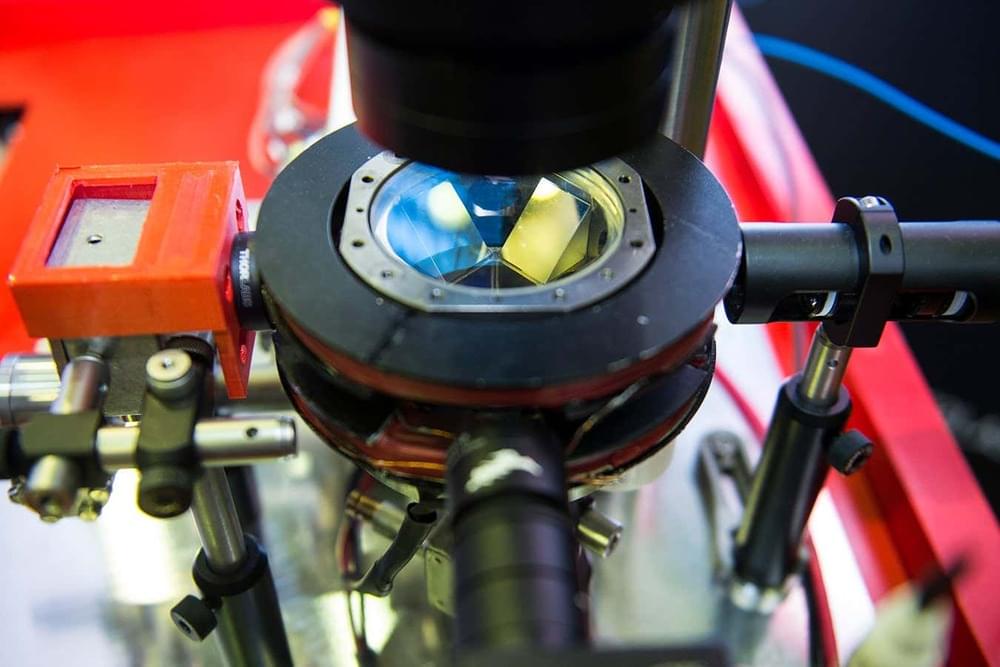Nov 8, 2023
No Lasers Needed: Optical Cavity’s Quantum Trick Alters Material Magnetism
Posted by Paul Battista in categories: computing, quantum physics
A new theoretical approach allows the alteration of α-RuCl3’s magnetic properties through quantum fluctuations in an optical cavity, providing a laser-free avenue for material manipulation.
Researchers in Germany and the USA have produced the first theoretical demonstration that the magnetic state of an atomically thin material, α-RuCl3, can be controlled solely by placing it into an optical cavity. Crucially, the cavity vacuum fluctuations alone are sufficient to change the material’s magnetic order from a zigzag antiferromagnet into a ferromagnet. The team’s work has been published in the scientific journal npj Computational Materials.
Advancements in Material Physics.

















